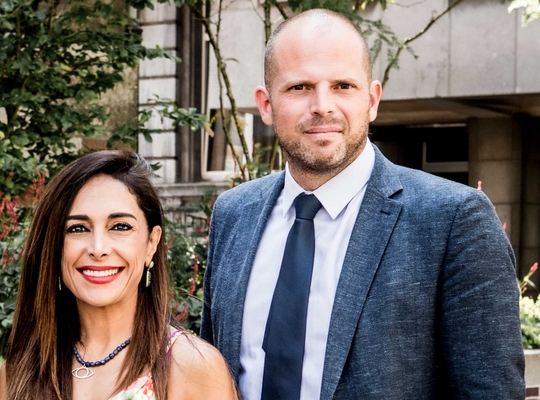You are here
Asylum policy is on the blink: years of asylum applications and hardly any returns

“The Belgian asylum policy is completely on the blink. New figures show that the processing time for an asylum application is now as long as 434 days. That is two full working years. In addition, the return of recognised Dublin cases to other EU Member States is a complete disaster. Barely 1 in 10 recognised Dublin cases is actually returned,” MPs Theo Francken and Darya Safai state.
The return of asylum seekers who are not entitled to reside in our country or stay in our reception facilities is still far below the level it was before the coronavirus crisis. In particular, the readmission of migrants under the Dublin system (whereby asylum seekers who apply for asylum in one European Member State but have already done so in another EU Member State can be sent back to the initial country) is sluggish. “Of the 8,442 cases, only 825 were actually returned. That means Belgium is lagging behind other EU countries. The effectiveness of the Dublin system must be called into question. It is time for a change of course in which our country actually does send people back,” say Theo Francken and Darya Safai.
The Dublin Regulation is detrimental
At the same time, the percentage of people that our country itself takes back under Dublin is a lot higher. With 61% of approved readmission decisions, our country indeed tops the list. “A worrying balance,” says Darya Safai. “While the Dublin system should be a useful tool for deporting people without a right to asylum, it has proven to be particularly detrimental to our country. This is due to the passive attitude of the federal government regarding returns.”
The Vivaldi government asylum policy is a mirage
“This Vivaldi government story about asylum and migration is a big mirage, and this becomes more painfully obvious every day. Belgium is the drain of the European asylum pool, led by a government of irresponsible, naive people condemned every day because it is never enough.” The N-VA therefore stresses the need for a different approach. “The Dublin agreement is not perfect, but it is not even being applied thoroughly today. There is a system of ‘asylum hopping’ going on in which our country, among others, lets the migrants do as they like by not sending them back,” says Theo Francken. He is therefore calling for the proper application of the Dublin rules to counter this “asylum hopping”. “No person who has already applied for asylum elsewhere in the EU should still be eligible for asylum in our country.”
The asylum procedure has never taken so long
Another consequence is that the asylum procedure is taking ever longer, up to 434 days on average. In 2018, for example, it was 309 days. “Processing an asylum application has never taken so long,” says Theo Francken. “In the 20 years that I have been following the asylum and migration file, a procedure has never taken so long, nor did it in the period before that. And then you should know that this government has made speeding up the processing of asylum applications its top priority. It has already thrown tens of millions of extra euros at it!”
Secondary migration
One of the reasons for the lengthy procedures is that asylum services have to spend a lot of time dealing with the huge amount of “secondary” migration. It turns out that almost half of the adults who applied for asylum in our country last year are registered in another EU Member State. In absolute figures, this relates to 14,537 of the 36,871 applications in 2022. “The European Dublin rules stipulate that migrants can be sent back to the country where they initially applied for asylum, but that hardly ever happens,” Francken says.
The third asylum record in a row
After the penalty fees (EUR 188 million) and the judgements (7,000), this is the third asylum record in a row for the federal government. This shows once again that Belgium’s asylum policy is a shambles. “It is time for a different fundamental approach whereby we externalise the asylum procedure outside the EU,” Theo Francken and Darya Safai conclude.

